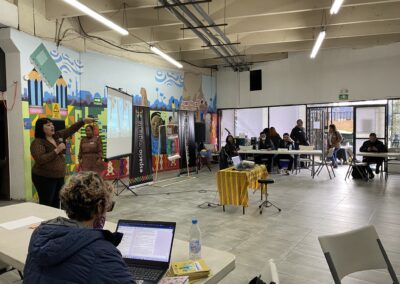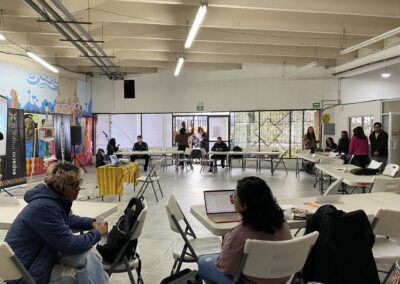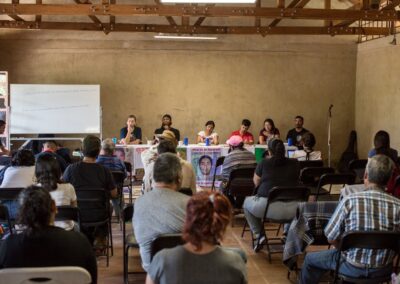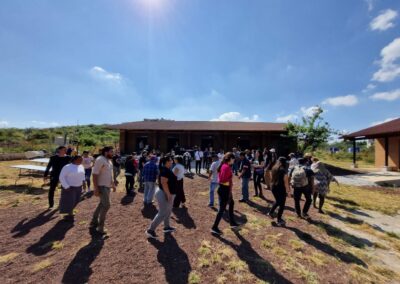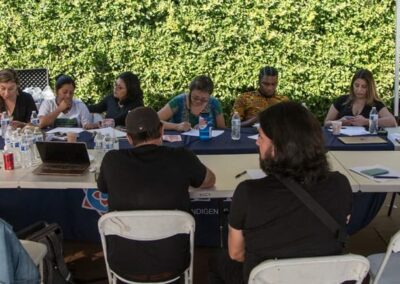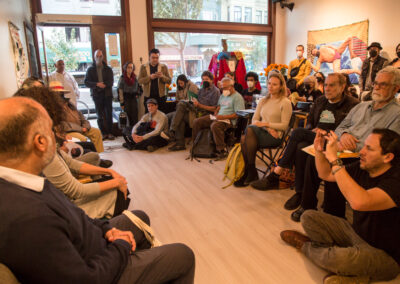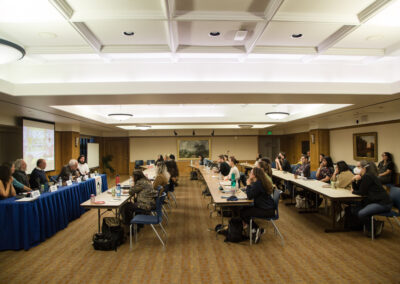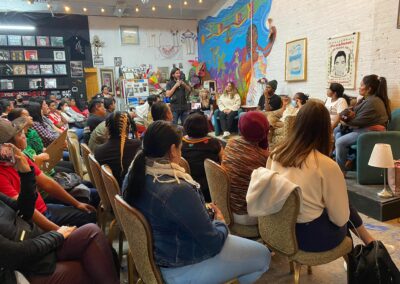
We are the People’s Movement for Peace and Justice
In 2023, activists, community leaders, victims and survivors of violence, migrants, members of diverse ethnic groups, communities of color, and LGBTQIA+ communities from Mexico and the United States launched the People’s Movement for Peace and Justice (PMPJ) to call on all people to stand up and organize against violence, injustice, xenophobia, racism, and exclusion everywhere.
Since the start of the War on Drugs in the United States in 1960 and then in Mexico in 2006, we have seen people throughout the Americas (especially women, the economically marginalized, Indigenous Peoples, youth, members of the LGBTQIA+ community, and communities of color) be ignored, criminalized, attacked, displaced, deported, and subjected to violence as a result of failed these national security strategies. Both countries declared the end of the so-called drug wars, and yet the suffering and violence continues. State-sponsored wars persist and their impact on the region is getting worse.
The formation of the People’s Movement for Peace and Justice (PMPJ) follows a series of nine preliminary forums in multiple countries and the 2023 Peace Summit in Mexico City, which brought together community representatives, grassroots organizations, and human rights defenders from multiple countries throughout the Americas. We agreed to champion the voices of the marginalized and oppressed; of the families impacted by the forced disappearance of their loved ones, of the survivors of violence, of the unjustly persecuted, and of all those deemed to be “illegal.”
We now organize transnationally around our ten demands for peace.
Presently, mainstream political parties in Mexico and the United States are preparing for upcoming national elections in 2024 but have had little to say, if anything, about the pressing needs and demands of the people. We know that humanity and the environment will continue to suffer as long as the rights of our communities are not prioritized. It is difficult to envision a better future while our communities are forced to migrate; while those who call out the injustices are violently suppressed; and while those that exploit and bring violence to our territories are given immunity.
We thus call on all sectors of society to organize in their neighborhoods, villages, towns, and cities and demand that the traditional and mainstream political parties address our issues and implement our twelve-point agenda.
We do this in the name of the more-than-110,000 victims of forced disappearance in Mexico, the 164,859 victims of firearm violence in just the last eight years, the more than 196,000 migrants deported last year, and the thousands that are subjected to criminalization, police brutality, and other forms of organized violence, as well as those that resist extractivist operations and commercial exploitation in their territories. We come together to demand justice and access to political participation and genuine representation. We come together to ensure that our voice is loudly heard.
June 2023
Stop the Violence and Stop Ignoring our People and our Communities.
#IgnoredNoMore #InvisibleNoMore
10 Priorities
For Peace
and Justice
In Mexico and the United States
01.
Binational Mechanism for effective control of gun sales in the US and to advance data sharing, transparency and control of US gun flows and their use in Mexico, to stop the proliferation of guns in the US and their illegal flow to Mexico that cost hundreds of lives every day.
02.
A Strategic binational High Level working group for Responsible Demilitarization of public safety, with participation of civil society and human rights multilateral organisms, to reform the Mexican military and US agencies’ control of security matters
03.
Promote regional dialogue about drug policy and launch a Binational Campaign to end the punitive paradigm concerning drugs and promote a new one that puts humans, rights and health at its center.
04.
Binding Binational institution for Human Rights monitoring that includes extraordinary mechanisms for determining truth, justice and to make victims whole, to establish a binding binational agreement between the US and Mexico that places human rights at the same level of importance as trade or security.
05.
Binational strategy for the search for the disappeared to establish a formal process within the governments of both the United States and Mexico to respond to the forced disappearance crisis.
06.
Binational initiative of peace and cultural education aimed to dismantle structures of racism and promote community cohesion, as well as cultural and institutional transformations to end structures of racism.
07.
Regional Forum to implement Latin American and Caribbean citizenship and then to advocate for a rights-centered labor and immigration reform in the United States, so each country and the region have policies that protect and attend to persons, families, and communities engaged in migration.
08.
Binational strategic working group with governments and civil society to address the hunger, violence and environmental damage that are at the roots of forced displacement and migration, to directly combat the phenomenon of forced displacement. No one should be forced to flee their home out of fear and violence.
09.
Create a Binational Fund to compensate for environmental losses and damages as mandated by the COP27 and implement the Peace Clause to put moratoriums on trade agreements that negatively impact the environment. We must protect the environment in order to ensure the health of present and future generations.
10.
Legislations in Mexico and the US that recognize and respect the rights of Indigenous and Native Peoples’, prohibit extractivism in their land and allow regional mobility.
SECOND STATEMENT FROM THE PEOPLE’S MOVEMENT FOR PEACE AND JUSTICE:
FROM NORTH TO SOUTH: THIS LAND IS OUR LAND.
The People’s Movement for Peace and Justice, made up of leaders, groups and organizations of Afro-descendants, indigenous peoples, victims of armed violence and migrants in the region of Mexico, the United States and Canada, on the occasion of the celebration of the International Day of Indigenous Peoples and Afro-Mexican Day, and adds to the demand for an end to racism, discrimination and the extraction of natural resources from the territories.
For many years now, indigenous peoples and those of the color of the land have had to endure the marginalization and exploitation of a political and economic power that perpetuates racism and exclusion throughout the region, through the denial of history, the monolingualism, white supremacist culture, gun violence, and capitalism.
Particularly, in recent years the peoples have shed blood and lost men, women and children who should not have migrated, disappeared or died. Since the murder of indigenous leader Samir Flores in Morelos, Mexico in 2018, multiple peoples, organizations and international organizations (including our recent summit for peace) have documented and denounced the forced displacement of thousands of families from the high mountains and the central region of Guerrero; the proliferation of organized crime and paramilitary groups in Chiapas and Guerrero; the permanent and profound denial, discrimination, invisibility and racism against Afro-descendant peoples in Mexico, and the criminalization of indigenous peoples who oppose the Mayan Train.
In the United States, according to the National Institute of Justice, 4 out of 5 indigenous women have experienced violence. Since the Homicide and Missing Unit of the United States Government Office of Indian Affairs was implemented in 2021, a database has been built with 1,500 missing Indians who have not yet been found and more than 2,700 cases of murder and manslaughter against indigenous people. Also, cultural appropriation and profiting from indigenous designs, images and processes is an everyday fight in the United States.
The governments of Mexico and the United States, in their most recent Tres Amigos Summit, announced the formation of working groups on racism, indigenous issues, and violence against women. As of today, no action has been announced.
The presidential elections are coming soon in our two countries and there will be a lot of noise from the promises and offers of change, but those of us who participate in the Movement of the Peoples for Peace and Justice know that this crisis will not stop until the political and economic systems do not recognize the structural causes of racism and discrimination in our region, and until the laws, institutions and government models that seeks to govern the lives of our peoples in the region are reformed.
On this day, we demand authorities, candidates and political parties to acknowledge and accept the 12 Priorities of our Movement, including:
End racism and discrimination.
Recognition of our history and our contributions.
Stop the militarization of our territories.
Stop the proliferation of weapons in our towns
Stop the persecution of indigenous migrants.
Respect for the territories, resources, processes and organizations of indigenous peoples,
From the Maya land to Turtle Island,
#IgnoredNoMore
People’s Movement for Peace and Justice
We are the voice of those historically marginalized across the region.
our demands come from deep democratic and radical dialogue.
It wasn’t the fire:
Binational Action in solidarity with Migrants and victims of immigration policies.
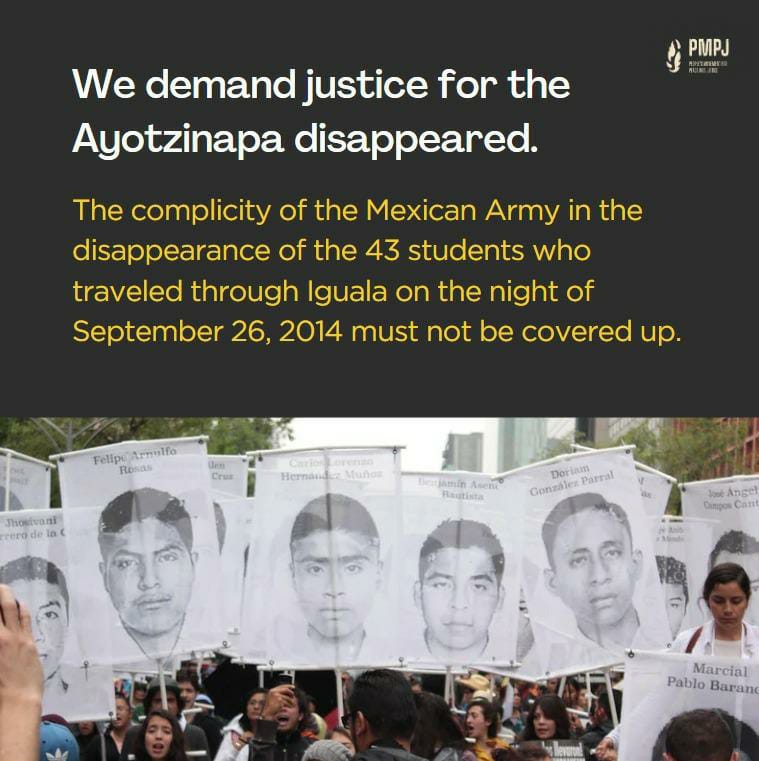
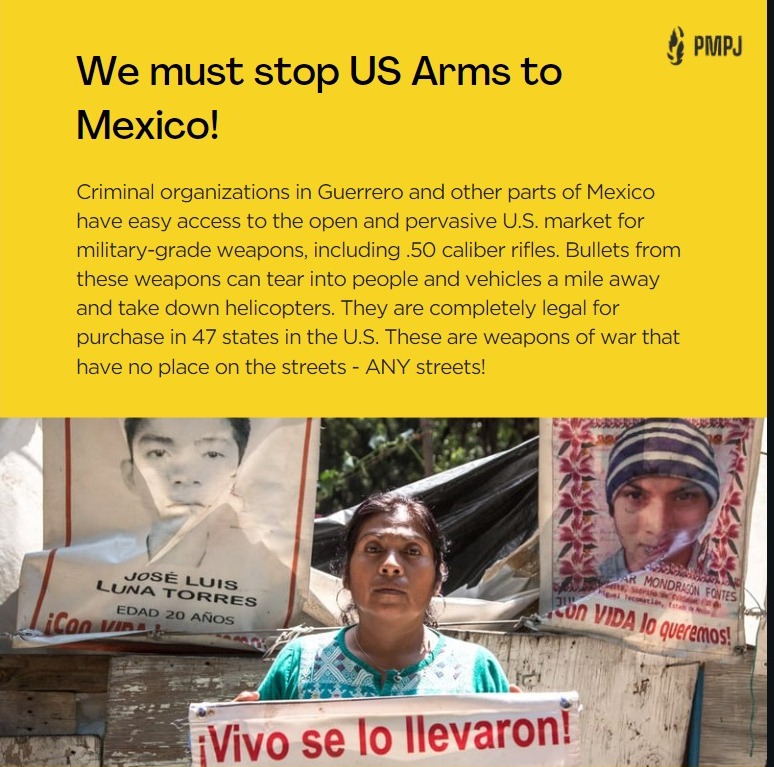
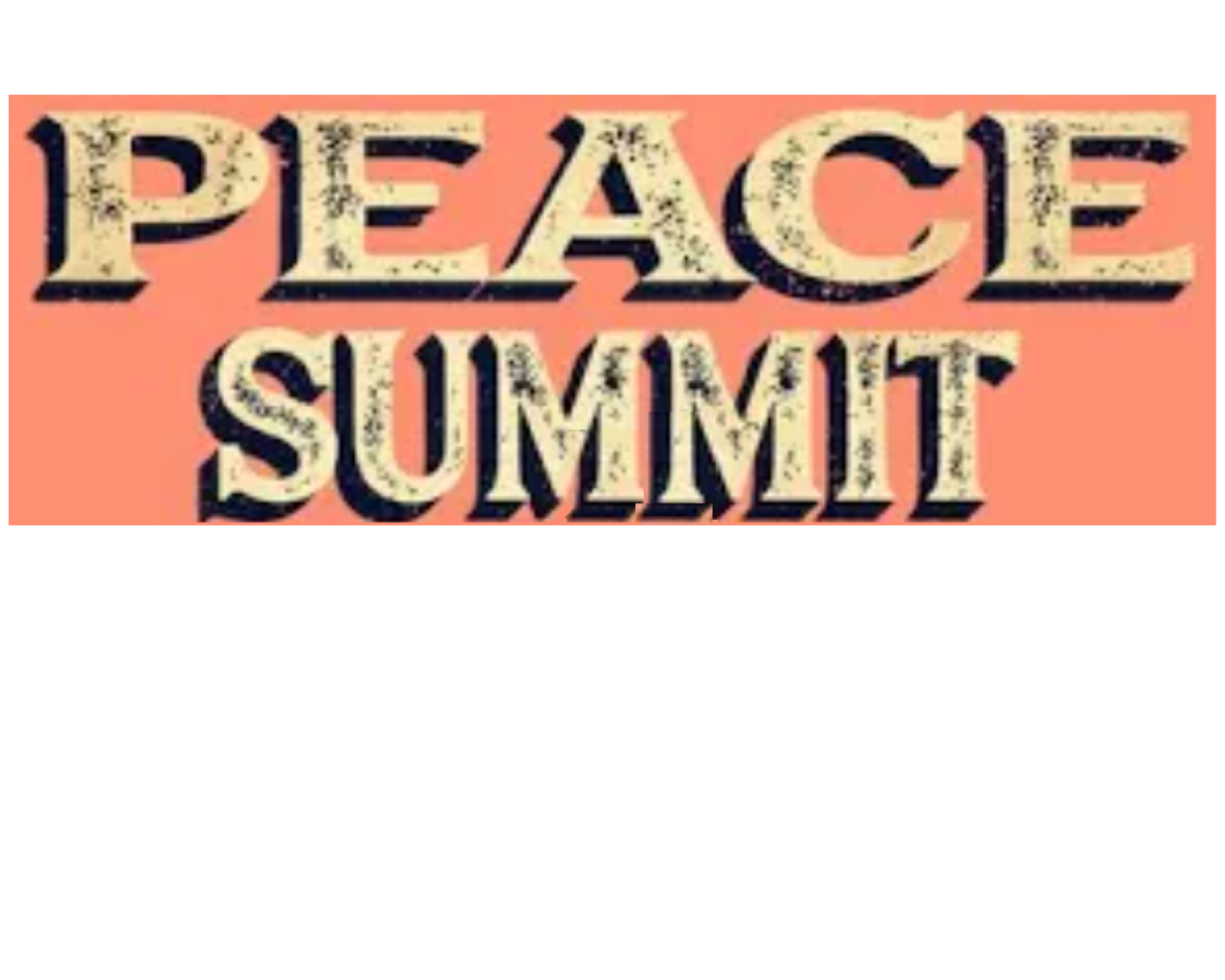
On February 23th and 24th, 2023, more than 300 leaders, activists and representatives from communities and organizations from Mexico and the United States came together to discuss priorities and create a people’s binational movement for peace and justice.
PReparatory forums in the lead up to the peace summit
For 6 months, we toured the Mexico-US region celebrating community and strategic to discuss the causes of armed violence, exclusion, racism, economic poverty and injustice
We are the People’s Movement for Peace and Justice
The destinies of the U.S. and Mexico, as well as our movements for social and environmental justice, are inextricably intertwined.
Ending regional violence and success in handling cross-border challenges — like migration, human rights, inequality (fair and sustainable economic development), and dangerous gun trafficking – requires the participation and engagement of civil society movements on both sides of the border.
We are living in a pivotal and urgent moment in both Mexico and the United States. From rising gun violence, political exclusion and disenfranchisement, worsening repression of migrants, and the expanding environmental and climate driven crises, the need for action, reform and political activism is now.
People of color across the borders share a history of oppression and resistance that bring us closer than what we think.
Both Mexico and the U.S. will have critical national elections in 2024. The time to build united, inclusive political power is now.
The PMPJ seeks to cultivate and catalyze a cross-border movement to denounce injustice and drive community-led solutions to the growing inequality, violence and human and migrant rights crises that impact the region.
More than 50 organizations from Mexico and the United States, under the leadership of Global Exchange, are organizing this initiative. The PMPJ aims to expand political access and build political power for those currently left out and left behind (youth, migrants, Indigenous communities and more) and to make their demands for human rights, justice, democracy, and peace heard.
The PMPJ will host an international peace summit in June 2024 and will utilize innovative digital organizing tools to engage and nourish the active majorities on both sides of the border we need to demand and affect change.

Participant communities and organizations
The People’s Movement for Peace and Justice is an initiative organized by Global Exchange in partnership with the following organizations, collectives and groups:

United States/Canada
• Alianza de Ex-Braceros
• Americas Program
• Black Lives Matter south Bend
• Black Lives Matters Canada
• California Institute for Rural Studies
• Center for American Progress
• Center for Native Americans
• CIELO, Indigenous leadership
• CODEPINK - Women for Peace
• El Molino Informativo
• Florida Farm Workers
• Gun Violence Prevention Network
• Indigenous Immigrant People Council
• IPS
• Latin America Working Group
• Lila
• March for Our Lives
• National Lawyers Guild
• North American Indigenous Center of New York
• Península 360Press
• Red de Pueblos Trasnacionales
• SEIU - USWW
• South Texas Human Rights Center
• Stop US Arms to Mexico
• Voces de los Pueblos
• Witness at the Border
• Women Against Gun Violence
• Change the Ref
• Global Action on Gun Violence
• Newtown Action Alliance
Mexico/Central America
• Albergue para Migrantes de Piedras Negras
• Alternativas de Divulgaciòn A.C.
• Alternativas y capacidades A.C.
• Casa de Acogida Formación y Empoderamiento de la Mujer Migrante y Refugiada
• Casa de Refugiados
• Casta Tochan
• Centro de Atención a la familia Migrante Indígena
• Centro de Derechos Humanos de la Montaña “Tlachinollan”
• Centro de protecciòn a refugiados y migrantes internacionales (CEPREMI)
• Comisión Mexicana de Defensa y Promoción de Derechos HUmanos
• Culturas del Pasado Voces del Presente
• Desde Nosotras, colectiva de fotoperiodistas
• Familiares en Búsqueda María Herrera
• Fundación Avina
• Fundación para la Democracia
• Instituto Mora
• Instituto para las Mujeres en las Migraciones
• Instituto RIA
• Jóvenes Ante la Emergencia Nacional
• Las Mujeres Rurales de la Frontera Sur S.A. de R.L. de C.V.
• Las Vanders
• Migrántolos
• Mujeres Organización y Territorios MOOTS
• NuestraRed Mx
• Red de Documentación de las Organizaciones
• ReverdeSer Colectivo
• Servicios y Asesorías para la Paz
• Tribunal Internacional de Conciencia Pueblos en Movimiento
• Ningún Ser Humano es Ilegal
• Tribunal Permanente de los Puelos
• Servicios Paz y Justicia
